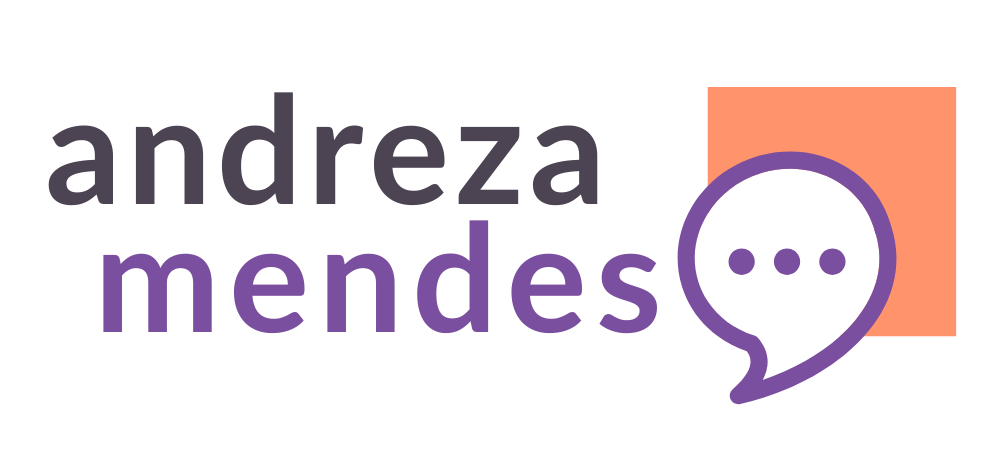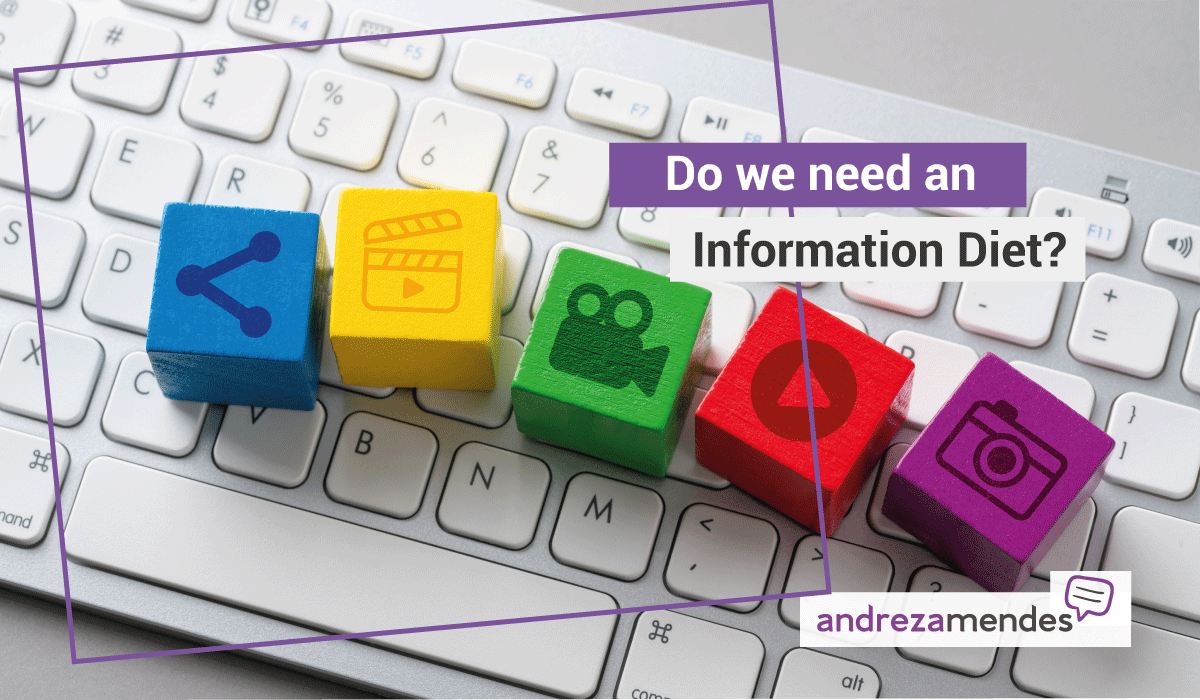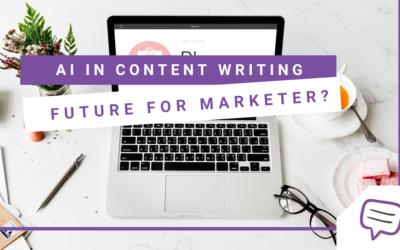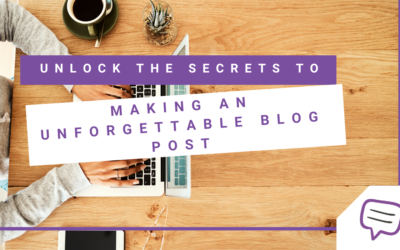When Trump won the elections, I was kind of in shock.
Of course, I know everybody was a little in shock with his win. But I was completely in shock. I was sure he was going to lose. When his conversation on the bus talking about harassment against women I was sure it was the end for him. I started to say things like “he’s going to lose the elections and break his business˜. Don’t need to mention how wrong I was…
In his book, The Information Diet, Clay Johnson defends one idea that explains things like this one. To him, the problem is in the way we consume information. We have a lot of data available just a few clicks away. But we don’t know what to do with this convenience. We eat too much, but we consume low-quality ingredients and have no clue about how to manage our nutrition. To Johnson, we do the same with information. We are filling ourselves with “poor quality questionable fabricated” news.
Johnson summarises the main problems with the way we consume information this way:
– Too much information
– Bad quality information
– Opinions “mascarade” as facts
– Unilateral information
The bubble we live in and the confirmation bias
I wasn’t wrong about Trump alone. Everyone around me thought the same – and we feed each other with that idea. And it makes what we believe look like the most obvious truth.
It happens a lot, right? We are so sure about something just because everyone is talking about it. And election time is always a good example of that.
This phenomenon is called a “filter bubble”. It’s an influential area where people have access to the same kind of information, has similar habits and have little contact with people who think and act differently than they do. But you already knew that, right?
Until a certain point, this is very common. It’s impossible to embrace the whole world and read about everything that exists. The problem is when talking specifically about politics, the reader starts to not get informed about something, but just looks to confirm his point of view over and over again. We, naturally, prefer affirmation over information – and we don’t even notice that! It is natural to human beings, but it can be really dangerous.
It’s like when you “know” that a certain politician “does not do any good” and just look at the news that says exactly that. Or when you’re absolutely sure that one political philosophy is always right, so you just ready for how they do so many good things. This is called confirmation bias. It’s when you read everything with a sign in your hands saying “See? I knew that!”. And let’s talk about how mad we get when someone shows a piece of news that says the opposite of our beliefs. It can only be a lie…
To Johnson, the danger of the worse information diets happens when the bubble is too small and the confirmation bias is really strong. And, more than that, the reader doesn’t realize what is going on. Believe me, sometimes it’s really hard to realize that – even when you know this happens…
Back to Trump’s election, see my case: everyone I truly know or follow on the internet was pissed about his behavior. Chimamanda Ngozi Adichie, one of my favorite writers, asserts in an article as a fact “Hillary Clinton will be the next president of the United States”. Lin-Manuel Miranda, my favorite person, went to the TV show Saturday Night Live to sing an iconic sentence from his iconic musical Hamilton and dedicate it to Trump: “Never gonna be president now”.
So, how come he won if “everyone” was against him? He won because sort of 60 million people was with him. I just didn’t know that.
Let’s put aside the political and economic side of his election and let’s just focus on the information side.
Clay Johnson talks a lot about how we can consume just “one side” of the information if we do not pay enough attention. He even named some channels that Democrats read that Republicans never check – and the other way around.
But the world is not perfectly divided in half and the facts are facts no matter our feelings. There are not two versions of them. The problem here isn’t that we have a political or ideological belief – far from that. The problem is when we start to get blind to things happening outside of that. It’s when we start to believe it’s “us against them”, that your “team” is always right when the other team is always wrong. It’s when we forget that the fact that we believe in something, have a position about some topic, doesn’t make the “other side” 1000% wrong – neither is yours 100% right. And realize that is a continuous exercise.
There’s an amazing podcast in Brazil called Mamilos that is amazing for this exercise. Cris Bartis and Juliana Wallauer always bring both sides of each history when they are discussing a topic – and they always encourage us to be more emphatic and to question things more conscious. You should check on that (if you speak Portuguese). 🙂
The important thing is: we don’t have to be neutral about everything (mainly because that’s impossible), but we should not get so blind that we have no idea what’s going on in another bubble besides ours.
Why are we so badly informed?
A reader can spend hours a day feeding himself with news and still be undernourished. For Johnson, there are some ways to be badly informed:
1 – Not knowing the difference between information and opinion:
He talks about a lot of tv shows that are, in fact, biased comments (to one side or the other) masked as information. What happens is that a lot of news takes the audience to think in some specific way. This is an opinion, not information. Can you think of some tv channel that does that? And, the hardest question, can you identify that on the information channels you use to be informed?
2 – Consume news made on “news manufactures”:
One of the parts of the book that most surprised me was the one about “news manufactures”. These are channels on the internet that pay a very low salary to journalists to write as many articles as they can per day. More than 10 articles a day sometimes. Quality does not matter here and the click baits just multiply. To Johnson, consume this “news” it’s the same as eating can food. It’s something that fulfills your hungry, but it’s not healthy. It only gives us the illusion we are well informed.
3 – Read the information very far from its source:
Remember when we were kids and like to play with a broken telephone? That’s the same concept here. We start to see that super important information in a Facebook post from a friend, who is reposting from a blog, that got it from an essay that was published at a magazine…and so it goes on. The post can be alright and be really useful, but let’s admit that chances of this long line go wrong are huge. To Johnson, more close you are to the source the better. If the article you are reading quotes an ONU study, why not check the document directly? If the news is indicating some statistics why not go to the institution responsible for it?
I would add that Facebook is not a place to read the news. Our bubble there is too big inside the network (but this is a topic for another post).
Why is this diet not healthy?
Besides causing big deceptions, a poorly diverse diet causes us to be misinformed. “The less a decision or opinion is based on facts, the fewer facts are going to change this decision or opinion”. This is the time we just want to throw the book at a wall and say there’s no salvation.
Clay also says that “The more informed a person is, the more strong their beliefs become. If these beliefs are right, it’s a totally different question”. But, doesn’t it kind of say the opposite of the preview information?
Remember we talked before that we seek more affirmation than information? A huge amount of data doesn’t mean necessarily a huge amount of information.
What does it mean? That the reader becomes kind of blind. After hearing the same thing over and over, it becomes the truth. And it doesn’t matter if it’s a fact or if you hear from a social media contact. It’s the truth. Period. And don’t even try to argue with that…
Do we know how to escape those traps?
In our day-to-day life, do we know how to identify the problems Johnson listed? Do we know what to consume and what to avoid in this world full of information?
We shared a questionary on social media asking people how they consume information. We did 5 questions to help us trying to understand a little bit about how people handle their information consumption:
– Where do you read the news? (Facebook, Twitter, news portals, blogs, etc?)
– Do you read the news in the same places or do you vary your sources?
– Do you think most people read the news in the same places you do?
– Do you read news from less popular sources?
– How do you check the veracity of the news you read?
In general, we found out that people consume information from news portals, specialized blogs and social media (Facebook was the most quoted one), and that they use it to check a variety of sources. About consume the news from the same sources, the results are divided – although “yes” had a larger number of votes. The not-so-popular sources were not a hit and, look for reliable sources was the way people check the veracity of the information.
This data bring us some important question: what is an unpopular source of news? What is a reliable source of information?
But you know the huge detail we can’t miss in this research? It represents the behavior on how people consume information… inside our bubble! Almost all the people who answered the research received the questions through Facebook (that has it’s a particular bubble inside). How much does it influence us?
So, what would be a good Information Diet?
Just like a diverse food diet is more healthy, a more diverse information diet is better for our world perception.
- Seek more information than affirmation (it’s hard, it will mess with you, but do it!)
- Pay attention to your bubble filters.
- Be conscious of your confirmation bias.
- Consume your news the closer from the source you can.
- Consume less-processed information.
- Runaway from the news coming from “news fabrics”
What do you say, let’s try to be more healthy with our information consumption?
Cool references:
>> Chimamanda Ngozi Adichie, writer, show in a TED talk the dangers of hearing just one side of a story
>> If you speak Portugues, Cris Bartis e Juliana Wallauer are the heads of Mamilo’s podcast





